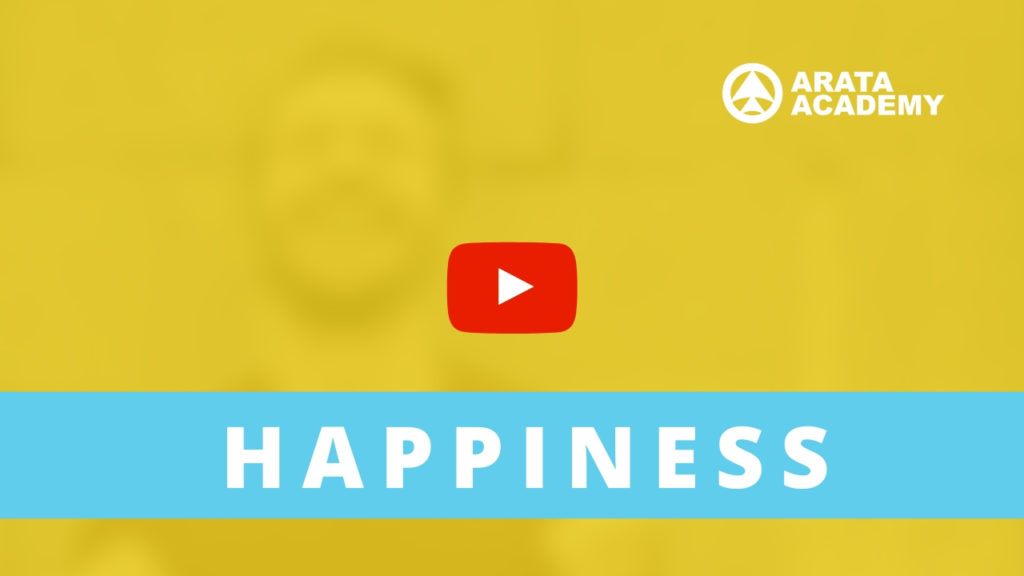Hello! Seiiti Arata. I don’t know you personally, but I can bet you don’t like it when other people try to control you. So why do you try to control others? Remember the golden rule: never do to others what you don’t want others to do to you. When you try to control others, you are only contributing to your own unhappiness.
Perhaps you think that it’s just other people who are controlling and you’re behaving like an angel. Let’s be honest: If you are an employer, you would like your employees to behave differently. If you are an employee, you would like your boss to be different. If you are married, at some point you will run into some disagreement over wanting to control your spouse’s behavior. Or control your child’s behavior. Or control your parents, friends, neighbors, colleagues and even people you don’t know.
It is common in social media for people to speak to the general public saying “this thing has to end”, “stop doing that thing”, “whoever does this has to be canceled”.
When we say that, deep down we are saying that it would be better if the whole world thought and acted the same way as we think and act. And what does that mean? This is a sign that there is a belief in superiority, that the way I see things is the right way. If everyone behaves the way I want, I will be happy and, in addition, everyone will be happy. It seems that I am the owner of the truth and the others are stupid for not agreeing with me.
In addition to wanting to control others, most of us also want to control results. We want to control the smallest details of our work. This even has a name: micromanagement.
In business, micromanagement is an approach whereby a manager closely observes and controls the work of their subordinates. Micromanagement is negative when it shows a lack of freedom in the workplace.
The question is, why do we have such a strong desire to control the external environment?
The search for control needs to be dosed correctly to be proactive, but without exaggeration.
The tendency to want to control people and results has an explanation: it is that this illusion of control makes you feel better, both emotionally and physically.
To some extent, the desire to control others and the results can be a good thing. Those who have a greater desire for control tend to have higher goals in life. They want to achieve greater results and also in fact end up achieving more.
Having some control over your actions and results has a positive side. For example, if you are in good control of your finances, or the food you eat, or the tasks you perform, you can more easily achieve goals like gaining financial independence, getting in shape, or being more productive.
On the other hand, we cannot exaggerate this search for control. We need to realize that we cannot control other people and results all the time. We need to find the sweet spot on how much control we should seek. Ignoring the healthy limits of seeking control can be detrimental to our levels of happiness.
Wanting to control others is an inevitable plan for your own frustration.
Nobody likes to feel controlled. Human beings have an enormous desire for autonomy and freedom. This means that we like to be in charge, or at least to feel that we are in charge of our own actions and our own destiny.
What is a world-famous way for you to make a child obey you? It is giving the signs that you want him to do just the opposite. Reverse psychology has to do with a desire to show that we have autonomy and we can do something that we are not allowed to do.
Psychological reactance shows us that seeking control over others is not a very good idea if you want to be happy. When you try to control others, they will react against you.
Take, for example, your attempt to control your husband or wife by asking them to eat healthy. This can have the opposite effect. There may be an increase in the consumption of unhealthy foods just to show you that you don’t give them orders, making it very clear to you that they don’t like to be controlled. This is an unfortunate dynamic of rivalry.
Power stress is the tendency to be angry and frustrated when others are not behaving the way you want them to. Basically, when you need power and control over others, you are creating an inevitable plan to have negative feelings, to feel anger, frustration or disappointment when others are not behaving as you wish.
As good as your intentions are, other people will never behave exactly the way you want. In fact, you won’t even behave the way your ideal self thinks you should behave.
The way out of being frustrated with this is simply to give up the attachment to control. You can talk, advise and even in some cases impose certain behaviors on you and others. However, always be aware that this behavior is unlikely to happen the way you expect.
Different behaviors facilitate your decision making.
Being a controller worsens the quality of the decisions you make. We make our best decisions when we are exposed to a diverse set of views. That is why it is important to surround yourself with people of diverse backgrounds and abilities and who know how to communicate different opinions. This is how you have access to different points of view and can use good reasoning to ponder and make conscious choices.
This is also why it is important to have people around who are not afraid to disagree with you, who are not afraid to express a sincere independent opinion.
When you are overly controlling others, chances are you have only people around you who are not going to tell you what they really think. That is, people who do not mind being controlled or who pretend to be controlled. They are people who only say yes in front of you and criticize behind your back. Or they are people who simply have no opinion because they do not care or are not interested in giving an opinion.
When you are too controlling, you end up alienating those who have an independent mind and could enrich your life. And you surround yourself with those who tend to agree with you all the time. This means that when you are controlling too much, your decision making is poorer.
Think, for example, of a family gathering where everyone is quiet while the boring relative is ranting about his extremist opinions. Despite disagreeing or having a different opinion, the others think that it is more convenient to just be quiet and let the boring one do his monologue and teach others his truth. What is the result? The boring will never evolve and tends to get worse and worse.
If your desire for control is too high, you become more superstitious in stressful situations.
When you have a strong desire for control and are stressed, you are more likely to believe in superstitions, for example, that hitting wood prevents bad luck. Superstition is used as a way to compensate for lack of control. Superstitions make people believe that they have more control over a situation than they really do. This can make people feel good at the moment, but it leads to worse decision making in the long run.
Excessive control of results reduces your levels of happiness.
Why? Because being in such an overcrowded place makes these people with a high need of control feel that their life is not going according to what they would like.
The more you try to control the world, the more unhappy you become. This is because many things in life simply cannot be controlled. You may want silence in order to study, but there is a loud party going on in your neighborhood. When you finally change your mind and decide to stop studying to go to the party, it suddenly starts to rain. Given the uncertainty of life, it is obvious that you will only have frustration if you want to control everything.
Let’s say you want to take a vacation on the beach without facing any problems and, moreover, with sunshine every day. Or having a specific job in a specific industry located in a specific city. Or having exactly two children, a girl and a boy. The chance of everything happening as you wish is low and there are elements beyond your control.
Excessive control makes you unhappy because it is a guaranteed plan to be frustrated and it also makes you angry, disappointed and perhaps even depressed when life doesn’t go according to plan.
Wanting to control the results we achieve in life can be good when we do it proactively and take responsibility for our results. We need self-knowledge and wisdom to realize when we are overreacting in this quest for control. We also need to understand the limits of what is out of control and learn to have acceptance, respect and awareness.
People who feel controlled can react and this can cause unhappiness in our relationships. In other cases, we may suddenly be surrounded by fake people who pretend to agree with us in front of us, but who despise us behind our backs.
If you have been criticized more than once for being a kind of controlling person, I invite you to rethink the way you behave, through practical and effective exercises that we have in the Happiness course. Just visit this link and together we will carry out activities so that you reach a balance between the desire for healthy control and avoid exaggeration. This restores the quality of your relationships and allows you to have greater peace of mind and happiness. Everything is a matter of knowing how to deal with reality in harmony.

